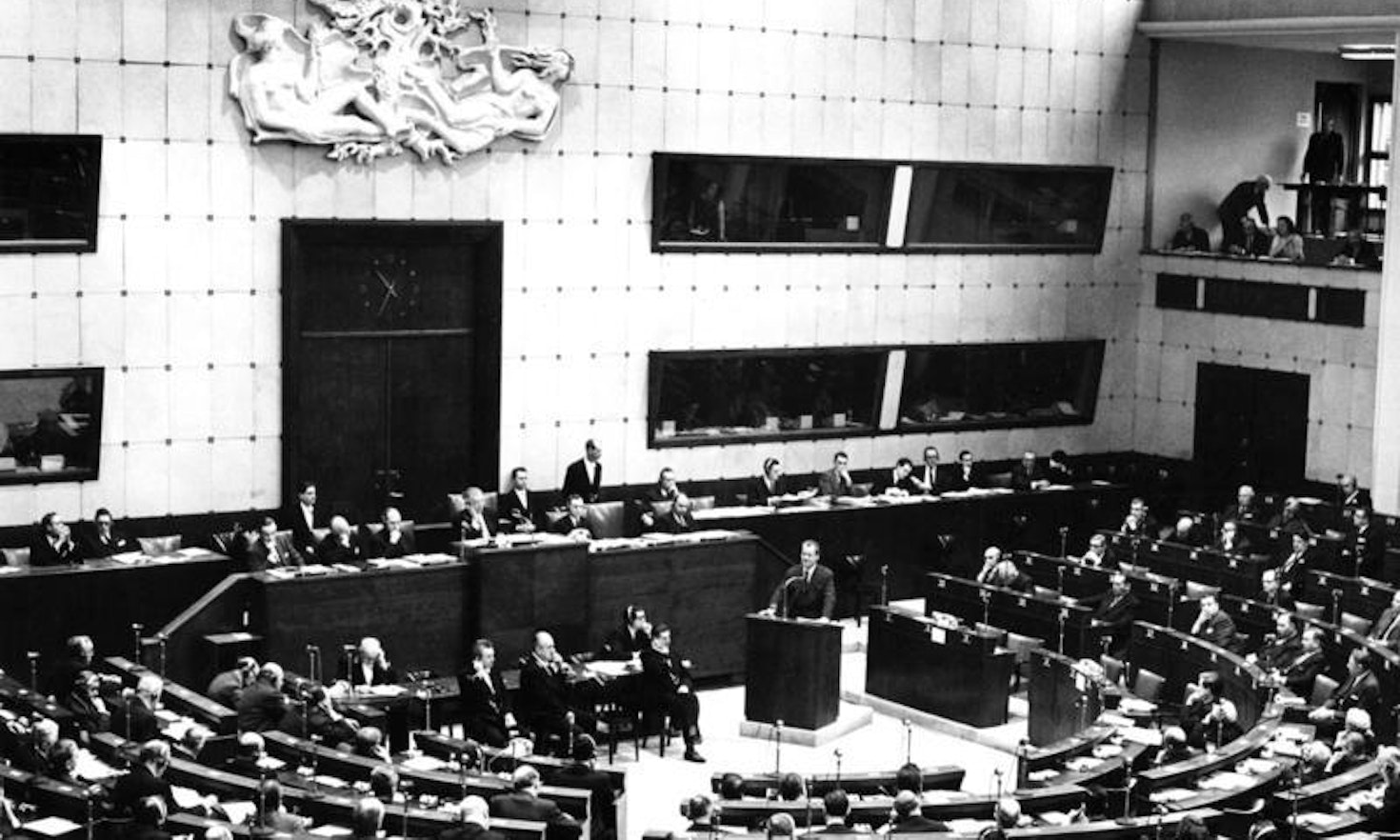The Council of Europe: what is it for?

24.1.1967 Bundesminister Willy Brandt Versammlung des Europarates in Straßburg
The name itself is somewhat misleading as the Council of Europe is something different from both the European Council and Council of the European Union.
The Council of Europe is an international organization distinct from the European Union. It was founded in 1949 by the Treaty of London with the aim of upholding human rights, democracy and the rule of law in the European continent. All Member States of the European Union are also members of the Council of Europe. But the reverse is not the case. Originally the organization comprised only ten European States, nowadays it counts 47-member States, including more than 820 million people.
Its system of governance is essentially based on three main institutions. The Secretary General is elected for a five-year term by the Parliamentary Assembly. He/she is the head of the Secretariat of the Council of Europe, leads and represents the Council and is responsible for the strategic planning and direction of its work. The Committee of Ministers is the Council of Europe’s decision-making body and is made up of the Ministers for Foreign Affairs of member States. The Parliamentary Assembly is composed of 324 representatives from the parliaments of 47-member states and is responsible for upholding the shared values of human rights, democracy and the rule of law. With this aim, the Assembly can among other things conduct probes to uncover human rights violations, demand joint action from European governments, observe elections, give opinions on treaties, negotiate the conditions for a State to join the Council and sanction a State by means of suspension or exclusion from the Council. Another institution, the Congress of Local and Regional Authorities, was created in 1994. It is made up of 324 representatives, appointed every four years and representing over 200.000 local and regional authorities of the 47-member states. The Congress is responsible for strengthening local and regional democracy and assessing the application of the European Charter of Local Self-Government in the member States.
To uphold human rights protection and political freedoms, in 1950 the Council adopted the European Convention on Human Rights (ECHR). At present all member States of the Council have signed up to it. The European Court of Human Rights is the judicial body in charge of its enforcement, by ensuring the all Europeans have their human rights, protected and vindicated by the Convention. Not only States but also individuals can bring a case in front of the Court and its decisions are binding, i.e. States charged with a human rights violation are obliged to comply with the Court’s decision. The latter often includes the payment of a certain amount to the victim in compensation for the damage he/she has suffered.
In 1999 the Council also established the Commissioner for Human Rights, an independent, impartial and non-judicial institution in charge of promoting awareness of and respect for human rights.
The Council prompted the adoption of several other treaties designed to strengthen the protection of certain rights, e.g. social rights with the European Social Charter, linguistic rights under the European Charter for Regional or Minority Languages, minority rights under the Framework Convention for the Protection of National Minorities. Of relevance are also the conventions on preventing and combating violence against women and domestic violence, on protection of children against sexual exploitation and sexual abuse, on action against trafficking in human beings. The Council is also committed to advocating the protection of democracy. Among others, it is worth mentioning the Venice Commission, an advisory body in charge of assisting and advising individual countries in constitutional as well as judicial reforms in order to improve the functioning of democratic institutions and the protection of human rights.
 |
Alice Valdesalici is an award-winning senior researcher at the Institute for Comparative Federalism of Eurac Research. She got her PhD in Italian and Constitutional Law from the University of Verona in 2016. Her main research interests are Comparative Federalism, Italian Regionalism & the special autonomy of Trentino-South Tyrol and Institutional Innovation. |
Citation
This content is licensed under a Creative Commons Attribution 4.0 International license except for third-party materials or where otherwise noted.

Examining the democratic principle of consensus in Canada, Scotland, Spain and Italy
 Alessandro Sorpresa
Alessandro Sorpresa
What effects does a participatory process have on the citizens? The case of the first Euregio citizens’ council
 Nicole Zambanini
Nicole Zambanini
Do “first times” really matter? Refreshing the main contents of the 2021-22 Chilean constitutional process and draft
 Sofia Ricci
Sofia Ricci
